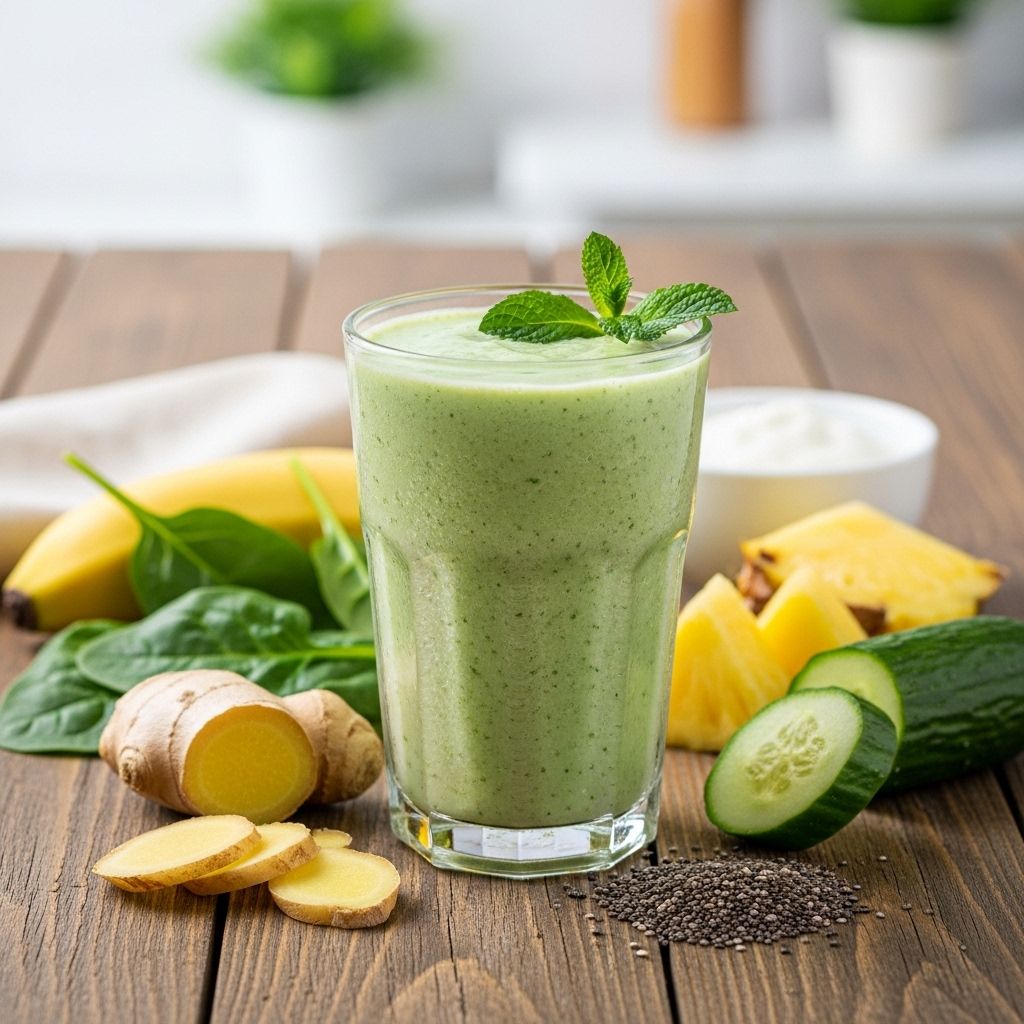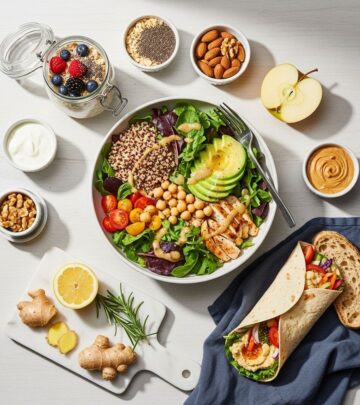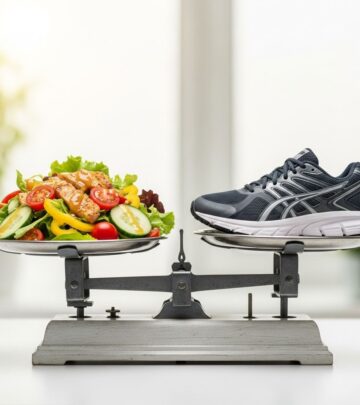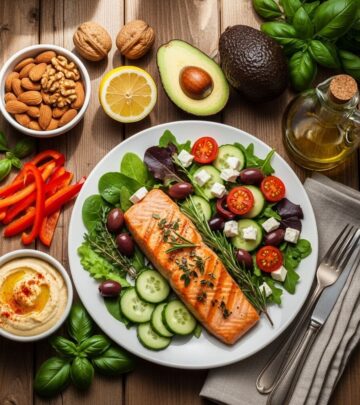The Best Smoothie for Reducing Bloating: Ingredients, Benefits & Nutrition
Discover the ultimate smoothie recipe and nutritional guidance to naturally reduce bloating and support gut health.

Bloating is a common digestive complaint that can make you feel uncomfortable and sluggish. While various factors contribute to bloating—including diet, hydration, and lifestyle choices—certain foods and beverages can help ease these symptoms naturally. Smoothies, when formulated with specific anti-bloating ingredients, can be an easy and delicious way to promote gut comfort. In this article, we explore the science of bloating, spotlight the best ingredients for digestive health, share a satisfying smoothie recipe, and answer common bloating-related questions.
Understanding Bloating and Digestive Discomfort
Bloating occurs when excess gas builds up in the digestive tract, leading to feelings of fullness, distention, and sometimes pain. It’s often triggered by:
- Eating gas-producing foods (like beans, lentils, cabbage, and onions)
- Consuming fatty or salty meals
- Swallowing air while eating too quickly or chewing gum
- Drinking carbonated beverages
- Imbalances in gut bacteria
While occasional bloating is normal, ongoing discomfort can negatively affect daily life. The food you eat plays a major role in regulating digestive health and minimizing symptoms.
Key Ingredients That Help Reduce Bloating
Certain foods and natural ingredients have properties that support gut health and help fight bloating. Choosing the right smoothie ingredients can make a meaningful difference. Let’s look at the top contenders:
1. Pineapple
Pineapple contains bromelain, an enzyme that helps break down protein and aids digestion. Bromelain’s anti-inflammatory properties can also soothe the digestive tract, promoting comfort.
2. Ginger
Ginger is well-known for reducing nausea, but it also combats bloating by relaxing intestinal muscles and supporting motility. It may reduce gas and cramping, making it a frequent addition to anti-bloating recipes.
3. Greek Yogurt
Greek yogurt offers probiotics—beneficial bacteria that help balance gut microbiome. A healthy gut lining with diverse bacteria reduces bloating, supports regularity, and enhances overall digestion.
4. Chia Seeds
Chia seeds are a source of fiber and omega-3 fatty acids. Fiber keeps the digestive tract moving and helps reduce constipation, a common cause of bloating. As chia seeds absorb liquid, they form a gel that further supports regular bowel movements.
5. Banana
Bananas are rich in potassium and can counteract the effects of sodium, which causes water retention and bloating. Their easy-to-digest fiber also benefits gut health.
6. Spinach
Spinach provides magnesium and fiber. Magnesium helps relax intestinal walls, and fiber feeds gut microbes that help process food efficiently.
7. Lemon Juice
Lemon juice acts as a mild digestive stimulant and introduces vitamin C, which can support immune and digestive function. Its tartness may encourage saliva and digestive enzyme production.
Perfect Anti-Bloating Smoothie Recipe
Combining these ingredients in a smoothie creates a nourishing drink that calms digestion and offers lasting energy. Here is a recipe inspired by expert recommendations:
- 1/2 cup fresh pineapple chunks
- 1 small banana
- 1-inch knob fresh ginger (peeled)
- 1/2 cup plain Greek yogurt
- 1 tablespoon chia seeds
- 1/2 cup fresh spinach
- Juice of 1/2 lemon
- 1/2 cup unsweetened almond milk (or your preferred dairy-free milk)
- Ice cubes (optional)
Instructions:
- Add all ingredients to a blender.
- Blend until smooth and creamy, adjusting the liquid for desired consistency.
- Pour into a glass, garnish with a pineapple wedge or chia seeds, and serve immediately.
Nutrition Information Per Serving
| Nutrient | Amount |
|---|---|
| Calories | Approx. 220 |
| Protein | 10g |
| Fiber | 7g |
| Sugar | 14g (from fruit, no added sugar) |
| Potassium | 550mg |
| Probiotics | Present (from Greek yogurt) |
This smoothie provides a robust balance of macronutrients, vitamins, and minerals while supporting gut health and fighting bloating.
Expert Guidance: Do Anti-Bloating Foods Work?
Digestive experts confirm that most cases of bloating stem from dietary choices and lifestyle. A diet high in salt, processed foods, or excess fat can cause water retention and slow digestion. A smoothie packed with hydrating, potassium-rich, and fiber-filled ingredients can promote regularity and reduce discomfort.
- Probiotics: Enhance gut flora and help the intestine process foods efficiently. Yogurt and fermented foods are excellent sources.
- Fiber: Supports healthy digestion and helps prevent constipation. Most fruits, seeds, and leafy greens are naturally rich in fiber.
- Enzymes: Found in pineapple and papaya, enzymes help break down proteins and can be gentle on the stomach.
- Hydration: Drinking fluids, especially those containing electrolytes, can dissolve excess salts and reduce fluid retention.
While a single smoothie won’t replace an overall healthy lifestyle, it can be a great daily addition to support digestive ease, especially after heavy meals, travel, or periods of dietary change.
Common Causes of Bloating (And How To Address Them)
- High Salt Intake: Salt causes water retention. Counterbalance with potassium-rich foods.
- Constipation: Lack of fiber or hydration slows digestion. Increase water and dietary fiber.
- Food Sensitivities: Dairy, gluten, and certain vegetables may trigger bloating if you’re sensitive.
- Carbonated Drinks: Sodas and sparkling waters introduce excess gas into the gut.
- Eating Quickly: Swallowing air while eating can add to digestive gas and bloating.
To limit bloating, focus on:
- Steady hydration (water, herbal teas, electrolyte drinks)
- Fresh produce, lean protein, and healthy fats
- Probiotic-rich foods (yogurt, kimchi, kefir)
- Avoiding excessive salt, sugar, and processed foods
Additional Tips to Minimize Bloating Naturally
- Eat Slowly: Take time chewing your food to limit swallowed air and support digestion.
- Exercise Regularly: Physical activity keeps digestive muscles active and helps relieve trapped gas.
- Monitor Food Intolerances: Track symptoms after high-dairy, high-gluten, or high-fat meals to find personal triggers.
- Avoid Artificial Sweeteners: Sugar alcohols and sweeteners can ferment in the gut, increasing gas.
- Stay Consistent: Making gut-friendly choices over time creates the biggest impact.
Frequently Asked Questions (FAQs) About Bloating and Smoothies
Q: Can eating smoothies every day reduce bloating permanently?
A: While daily smoothies made with anti-bloating ingredients can support better digestion and reduce symptoms, persistent bloating may require deeper investigation. Consider underlying medical conditions if symptoms continue.
Q: Are there foods I should avoid if I’m prone to bloating?
A: Yes. Consider reducing beans, cruciferous vegetables (e.g., broccoli, cabbage), fried foods, carbonated beverages, and artificial sweeteners. Track and adjust based on your response.
Q: Do probiotics in yogurt always help digestion?
A: Probiotics often support digestive health, but some people react to dairy. If you’re lactose intolerant, try lactose-free yogurt or dairy-free probiotic sources like kefir or plant-based yogurts.
Q: How soon can you expect relief from bloating after drinking a smoothie?
A: Many people notice relief within 30 minutes to 2 hours, especially if their bloating is mild and diet-related. However, chronic bloating may require a longer-term dietary change or medical advice.
Q: Can I substitute ingredients in this smoothie recipe?
A: Absolutely! Try swapping pineapple for papaya, spinach for kale, or Greek yogurt for dairy-free yogurt. The key is to focus on fiber, potassium, probiotics, and low sodium.
Summary: Why Choose a Gut-Friendly Smoothie?
A smoothie designed to reduce bloating provides a convenient, customizable way to support digestive health. By focusing on nutrient-dense ingredients like pineapple, ginger, yogurt, chia seeds, and spinach, you harness natural enzymes, fiber, and probiotics for improved comfort. Pair your smoothie habit with a balanced diet, hydration, and active lifestyle for best results. If bloating persists, consult a healthcare professional to rule out food sensitivities or underlying health issues.
Quick Reference Table: Best Foods to Fight Bloating
| Food | Why it Helps |
|---|---|
| Pineapple | Contains bromelain; promotes digestion |
| Banana | Rich in potassium; reduces water retention |
| Ginger | Relaxes gut muscles; reduces gas |
| Yogurt | Contains probiotics for gut health |
| Chia Seeds | Fiber promotes regularity |
| Spinach | Magnesium helps relax digestive tract |
Final Thoughts
Whether you’re seeking relief from occasional bloating or aiming to improve your overall digestive wellness, incorporating the right foods into your daily routine makes a world of difference. Start with the anti-bloating smoothie recipe, experiment with ingredient swaps, and keep hydration high. Remember, the journey to better gut health is gradual—but a delicious smoothie can make the process enjoyable and sustainable.
Read full bio of medha deb












